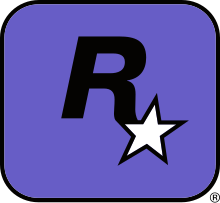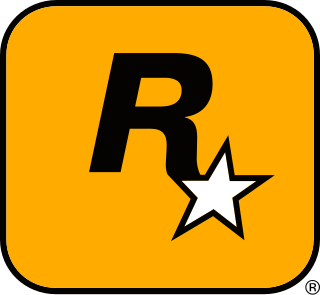
Rockstar Games, Inc. is an American video game publisher based in New York City. The company was established in December 1998 as a subsidiary of Take-Two Interactive, using the assets Take-Two had previously acquired from BMG Interactive. Founding members of the company were Terry Donovan, Gary Foreman, Dan and Sam Houser, and Jamie King, who worked for Take-Two at the time, and of which the Houser brothers were previously executives at BMG Interactive. Sam Houser heads the studio as president.

Rockstar Games UK Limited is a British video game development company and a studio of Rockstar Games based in Edinburgh. The company was founded as DMA Design in Dundee in 1987 by David Jones, soon hiring former classmates Mike Dailly, Russell Kay, and Steve Hammond. During its early years, DMA Design was backed by its publisher Psygnosis, primarily focusing on Amiga, Atari ST and Commodore 64 games. During this time, they created successful shooters such as Menace and Blood Money, but soon turned to platform games after the release of Lemmings in 1991, which was an international success and led to several sequels and spin-offs. After developing Unirally for Nintendo, DMA Design was set to become one of their main second-party developers, but this partnership ended after Nintendo's disapproval of Body Harvest.

Red Dead Revolver is a 2004 action-adventure game developed by Rockstar San Diego and published by Rockstar Games. It is the first entry in the Red Dead series, and was released for the PlayStation 2 and Xbox in May 2004. Set in the 1880s, during the American frontier, the single-player story follows bounty hunter Red Harlow's quest for revenge after the murder of his parents. A local multiplayer mode allows up to four players to face off against each other or AI-controlled bots in free-for-all battles.
Yoshiki Okamoto, sometimes credited as Kihaji Okamoto, is a Japanese video game designer. He is credited with producing popular titles for Konami, including Gyruss and Time Pilot, and for Capcom, including 1942, Gun.Smoke, Final Fight and Street Fighter II. He later founded the companies Flagship and Game Republic, and then created the hit mobile games Dragon Hunter and Monster Strike for Mixi. He also played a role in the creation of Rockstar's Red Dead franchise. Several franchises he helped create are among the highest-grossing video game franchises of all time, including Street Fighter II, Monster Strike and Red Dead.
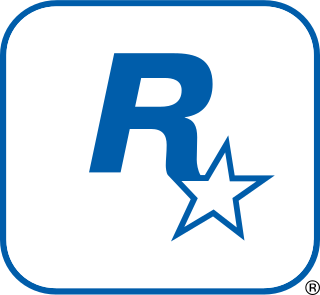
Rockstar Leeds Limited is a British video game developer and a studio of Rockstar Games based in Leeds. Ian J. Bowden, Dave Box, Gordon Hall, and Jason McGann founded the company as Möbius Entertainment in December 1997 after working together at the studio Hookstone. Möbius worked with SCi on two games: Alfred's Adventure, a remake of the Twilight-developed Alfred Chicken, and the cancelled Titanium Angels. From 2001 on, the studio created Game Boy Advance games for several publishers, including multiple for The 3DO Company and Max Payne for Rockstar Games.
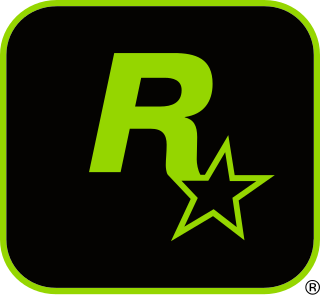
Rockstar New England, Inc. is an American video game developer and a studio of Rockstar Games based in Andover, Massachusetts. Ian Lane Davis founded the company as Mad Doc Software in November 1999 after working as technical director for Activision. The studio worked with Activision on Star Trek: Armada before leading the development of its sequel, Star Trek: Armada II. From 2002 on, Mad Doc was the principal developer of the Empire Earth series, developing two games and two expansions. While the successful Empire Earth II landed the company publishing contracts with Rockstar Games and Bethesda Softworks, Empire Earth III was a critical and commercial failure and led to an end for the series. Mad Doc developed Star Trek: Legacy for Bethesda Softworks and Bully: Scholarship Edition for Rockstar Games. After the latter was released in March 2008, Rockstar Games's parent company, Take-Two Interactive, bought Mad Doc and made it part of Rockstar Games as Rockstar New England. Under Rockstar Games, the studio worked on a sequel to Bully until its developers were reallocated to projects like Max Payne 3.
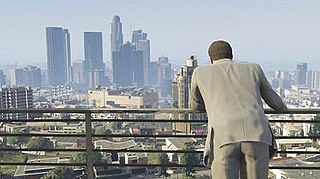
The Rockstar Advanced Game Engine (RAGE) is a proprietary game engine of Rockstar Games, developed by the RAGE Technology Group division of Rockstar San Diego. Since its first game, Rockstar Games Presents Table Tennis in 2006, released for the Xbox 360 and Wii, the engine has been used by Rockstar Games' internal studios to develop advanced open world games for consoles and computers.
Akira Yasuda is a Japanese animator, character designer, game designer and mecha designer, who works under the pseudonym "Akiman". Yasuda is a former employee of the video game company Capcom and has worked on many Capcom games, taking on various design roles for works such as the Final Fight series and Street Fighter II: The World Warrior. He has also been involved in anime production, most notably Turn A Gundam,Overman King Gainer and Code Geass. He also went to the United States to work on Red Dead Revolver for Angel Studios. When the studio was bought by Rockstar Games, he returned to Japan, where he officially left Capcom in 2003 and started working as a freelance artist.

L.A. Noire is a 2011 action-adventure video game developed by Team Bondi and published by Rockstar Games. Set in 1947 Los Angeles, the game follows detective Cole Phelps's rise among the ranks of the Los Angeles Police Department as he solves a range of cases across various bureaus. When he is tasked with investigating a morphine distribution ring involving several of his former squadmates from World War II, Phelps finds both his personal and professional life falling into turmoil, and reluctantly joins forces with his estranged former comrade, Jack Kelso, as they uncover a major conspiracy involving prominent Los Angeles figures.

Rockstar Lincoln Limited is a British video game developer based in North Hykeham. It is the quality assurance and localisation studio of Rockstar Games. Steve Marsden and David Cooke founded the company as Spidersoft in May 1992. Initially, it primarily developed Game Boy and Game Gear ports of various titles, including pinball video games for publisher 21st Century Entertainment, which acquired Spidersoft in 1995. After 21st Century Entertainment shut down in March 1998, Take-Two Interactive acquired Spidersoft in June that year and renamed it Tarantula Studios. The studio continued working on Game Boy and Game Boy Color games, such as Grand Theft Auto (1999). In 2002, the development arm of Tarantula Studios was shut down and the quality assurance portion was integrated into Take-Two's Rockstar Games label as Rockstar Lincoln.
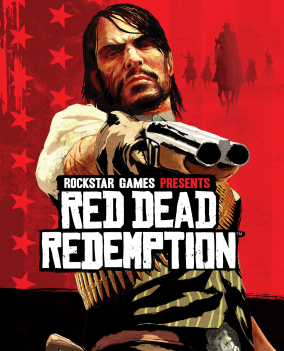
Red Dead Redemption is a 2010 action-adventure game developed by Rockstar San Diego and published by Rockstar Games. A successor to 2004's Red Dead Revolver, it is the second game in the Red Dead series. Red Dead Redemption is set during the decline of the American frontier in the year 1911. It follows John Marston, a former outlaw who, after his wife and son are taken hostage by the government in ransom for his services as a hired gun, sets out to bring three members of his former gang to justice. The narrative explores themes of the cycle of violence, masculinity, redemption, and the American Dream.

Red Dead is a series of Western-themed action-adventure games published by Rockstar Games. The first entry in the series, Red Dead Revolver, was released on the PlayStation 2 and Xbox in May 2004. Originally developed by Capcom, Red Dead Revolver borrowed elements from their 1985 arcade title Gun.Smoke, to which it was intended to be a spiritual successor, but the game was cancelled in 2002. Subsequently, after acquiring the rights, Rockstar purchased Red Dead Revolver and expanded on it.
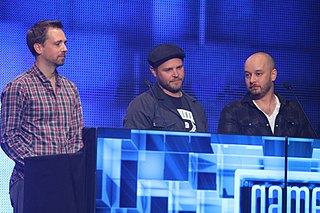
A team of approximately 1,000 people developed Red Dead Redemption over five years. Rockstar Games published the action-adventure game in May 2010 for the PlayStation 3 and Xbox 360, and in August 2023 for the Nintendo Switch and PlayStation 4. A spiritual successor to the 2004 game Red Dead Revolver, its development was led by Rockstar San Diego's core 180-person team, who collaborated with Rockstar's Leeds, New England, North, and Toronto teams to assist development; Rockstar North, developer of the Grand Theft Auto series, consulted in the creation of the open world. After its announcement in 2009, the game was fervently promoted with press showings, cinematic trailers, and viral marketing strategies. Its release date, though subject to several delays, was widely anticipated. The working hours and managerial style of the studio during development was met with public complaints from staff members.
The music for the 2010 action-adventure western video game Red Dead Redemption, developed by Rockstar San Diego and published by Rockstar Games, was composed by musicians Bill Elm and Woody Jackson. Recorded at Jackson's studio in Los Angeles, the soundtracks were produced by David Holmes. The music was intended to imitate soundtracks of 1960s Western films, such as Ennio Morricone's work on the Dollars Trilogy. In collaboration with each other, Elm and Jackson produced over fourteen hours of music across fifteen months. The composers used unconventional instruments to create unique sounds, and worked with artists such as Tommy Morgan during production. Four supplementary vocal recordings were also produced for the game.

Red Dead Redemption: Undead Nightmare is a standalone expansion pack to the 2010 video game Red Dead Redemption. It adds a non-canonical zombie horror-themed single-player campaign, two multiplayer modes, and cosmetic additions to the environments and characters of the open world Western action-adventure game. Set in an alternate timeline from the base game's story, the plot follows returning protagonist John Marston, a former outlaw who sets out to find the cause of and possible cure for a zombie plague that has infected his wife and son. Marston liberates towns overrun by the undead and assists non-playable characters with side quests along the way.

Rockstar Interactive India LLP is an Indian video game developer and a studio of Rockstar Games based in Bangalore. The company was established in August 2016 and is led by studio director Daniel Smith. It absorbed Dhruva Interactive, India's oldest game developer, in May 2019.

Red Dead Redemption 2 is a 2018 action-adventure game developed and published by Rockstar Games. The game is the third entry in the Red Dead series and a prequel to the 2010 game Red Dead Redemption. The story is set in a fictionalized representation of the United States in 1899 and follows the exploits of Arthur Morgan, an outlaw and member of the Van der Linde gang, who must deal with the decline of the Wild West while attempting to survive against government forces, rival gangs, and other adversaries. The game is presented through first- and third-person perspectives, and the player may freely roam in its interactive open world. Gameplay elements include shootouts, robberies, hunting, horseback riding, interacting with non-player characters, and maintaining the character's honor rating through moral choices and deeds. A bounty system governs the response of law enforcement and bounty hunters to crimes committed by the player.

The SXSW Gaming Awards were awards given to video games during the annual South by Southwest Festival (SXSW), held in Austin, Texas typically in March of that year. The Awards were part of the SXSW Gaming Expo which is part of the SXSW Interactive branch of the festival.

A team of approximately 1,600 people developed Red Dead Redemption 2 over several years. Rockstar Games published the action-adventure game in October 2018 for the PlayStation 4 and Xbox One, and in November 2019 for Windows and Stadia. Rockstar co-opted all of its studios into one large team to facilitate development. The story is set in 1899 in a fictionalized representation of the Western, Midwestern, and Southern United States and follows outlaw Arthur Morgan, a member of the Van der Linde gang. Arthur must deal with the decline of the Wild West while attempting to survive against government forces, rival gangs, and other adversaries. The story also follows fellow gang member John Marston, the protagonist of Red Dead Redemption (2010).
